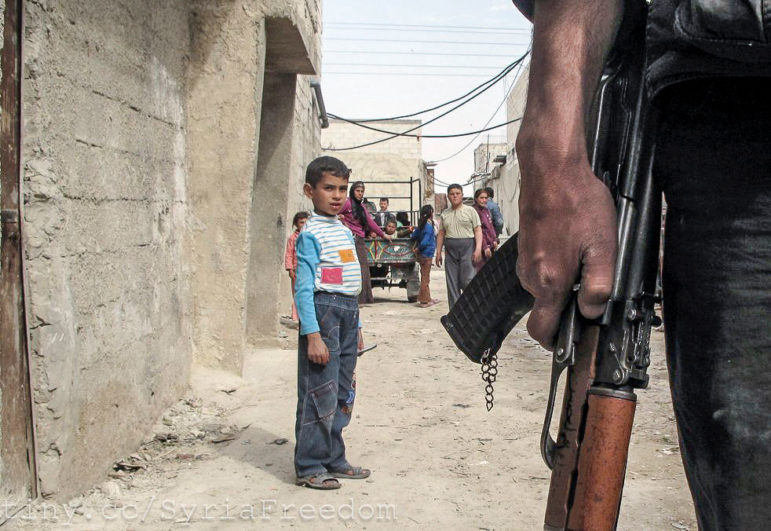
September 16, 2016; CNN, “Middle East”
Although a ceasefire is temporarily in effect in war-torn Syria, humanitarian aid has been blocked for days at the Turkish border, leaving thousands of Syrians without many basic needs—like food, for example.
Despite the current truce, the United Nations blames the Syrian government for holding up the aid as they have not provided the proper paperwork necessary for convoys to access Aleppo or other besieged parts of the country. Until the UN receives this paperwork, they say it isn’t safe for these convoys to pass through. The convoys are made up of 20 trucks carrying enough food to feed 40,000 people for a month, and other supplies.
Advisor to the special UN envoy to Syria, Jan Egeland, recently pleaded, “Well-fed grown men, please stop putting political, bureaucratic and procedural roadblocks [before] brave humanitarian workers that are willing to go to serve women, children, wounded civilians in besieged areas.”
Both the United States and Russia have said they want to extend the ceasefire they initiated, despite spots of continued violence. Both superpowers, however, are distrustful of the other and pointing fingers as to why thousands of pounds of flour, food rations and medical supplies are stalled at the border.
Sign up for our free newsletters
Subscribe to NPQ's newsletters to have our top stories delivered directly to your inbox.
By signing up, you agree to our privacy policy and terms of use, and to receive messages from NPQ and our partners.
A little background as to why the U.S. and Russia are pulling the strings here: because the U.S. and Russia support—that is to say, arm—opposing forces in the Syrian civil war. The U.S. is behind the rebels, while Russia continues to support President Bashar al-Assad’s government. They have agreed, however, to share information about the jihad fighters that are their common enemies if this truce lasts.
Russia is now accusing a U.S.-led coalition for an airstrike Sunday morning on the Syrian army, killing more than 90 soldiers, according to the Syrian Observatory for Human Rights. Russia’s Foreign Ministry said they hoped the action by the coalition was not an order from Washington D.C. and “strongly urge Washington to exert the needed pressure on the illegal armed groups under its patronage to implement the ceasefire plan unconditionally.”
With the ceasefire on shaky ground, so is the idea of aid getting to Syrian civilians. And it’s needed now more than ever: Pro-Syrian government forces encircled the rebel zone in Aleppo earlier this month, trapping an estimated 300,000 civilians there with no way to bring in food.
The Syrian civil war has killed an estimated 430,000 people since it started five years ago, and more will die if aid continues to be kept from reaching thousands of civilians.—Angie Wierzbicki












